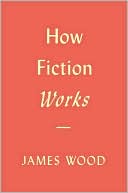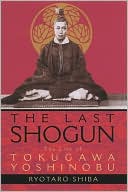
Not By Chance: A Theory of Evolution Governed by Essential Law and Driven By Natural Effectuation: A Truly Scientific Theory of Evolution, and Darwinism Debunked
Mr. Dressman believes that it is important for children to be taught a theory of theistic evolution, but acknowledges that there has never been one before--until now.
Unfortunately Dressman's displayed knowledge of both the scientific process and biological evolution via natural selection are too woefully rudimentary to qualify him to make any such claims. To begin with, it should be blazingly obvious to anyone familiar with how scientific theories are developed that they have nothing whatsoever to say about metaphysics.
For those not so familiar with the scientific method, a theory is an explanatory framework that accurately describes (within useful limits) what is seen in the natural world. Theories must be testable, and by the time a concept earns the label "theory" it is assumed that it has already passed some major tests and does a better job of explaining things--at least in some ways--than any theories they are intended to replace. However, you will probably have noticed that there is no scientific "theory of God" or a theory that explains what purpose we serve in the universe. The reason for this vacuum is that there are no experiments that one can perform--even in principle--to test whether ideas like the Buddhist concept of reincarnation or the Christian notion of resurrection are correct. Religious concepts, such as the answer to the question "Why am I here?" and "Who is this God person, anyway?" are not explorable by science, and thus any idea that tried to answer those questions could not be a scientific theory.
When the great Isaac Newton developed his Theory of Gravitation to explain the observed motions of the planets, which hitherto had been assumed to move by Divine Will, Newton made an important distinction: "Gravity explains the motions of the planets, but it cannot explain who set the planets in motion." Newton was probably assuming that the planets had existed unchanged in their present orbits since the time they were created. We now know this isn't true but the basic gist of his comment is the same. Newton's theory could say nothing about the Creator, who defines and defies the laws of nature and set the whole universe in motion.
So where does this leave Dressman? By positing a theistic explanation for evolution he has left science behind and entered the realm of religion. Why does he think he can do this? Because he misunderstands Darwin's Theory of Biological Evolution. The three cornerstones of Darwin's theory are
- reproduction of biological organisms with modification (mutation)
- selection (natural, artificial)
- repeat
As to Dressman's dismissive canard that natural selection is a tautology, I will not waste my time refuting it (John Wilkins does an excellent job covering the bizarre argument here). Suffice to say that anyone making that claim today displays a breathtaking ignorance of Darwin's theory.
Dressman might be surprised to hear that in pharmaceutical chemistry, where the pressure to succeed is intense, chemists have taken to using evolutionary computation to find what they need. In "An Introduction to Evolutionary Computations and Evolutionary Algorithms," (2004) W. H. Cartwright writes "To identify compounds of potential therapeutic interest, the relatively tiny proportion of molecules which meet the specific criteria need to be pinpointed among the unsuitable molecules." The fractional scale difference between the molecules of interest and molecules that exist is huge, and is precisely the same sort of needle-in-a-haystack search that Dressman ridicules as being impossible in Darwin's theory, yet chemists have conquered the problem by adopting the following procedure:
- simulated reproduction of biological chemicals with modification (mutations)
- selection (artificial)
- repeat
=Sources=
Cartwright, H. M. (2004) An Introduction to Evolutionary Computation and Evolutionary Algorithms. In Johnston, R. L. Applications of Evolutionary Computation in Chemistry Berlin: Springer
Dressman, Ronald C. (2007) Not By Chance: A Theory of Evolution Governed by Essential Law and Driven By Natural Effectuation. West Conshohocken, PA: Infinity.


1 comment:
Too bad John Vreeland chose not to give my book a careful reading. Had he done so, he would have been able to comment on its contents. Instead, as is typical for close-minded followers of Darwin, he refused to even consider the truly scientific alternative to natural selection contained therein. His comments are nothing more than another phobic response to the idea that science has a real relationship to metaphysics. His comments come complete with the personally disparaging remarks always directed at anyone who dares to go against the holy grail of natural selection.
Bottom line, nothing he said (or referenced) refutes the fact that Darwinism is a theory based on chance. Deferring to chance is not science but becomes necessary when one refuses to accept the obvious relationship between science and metaphysics that accounts for the purposefulness in the workings of nature.
Actually, my theory of "Natural Effectuation governed by Essential Law" can stand on its scientific merits with or without its theistic elements - but why settle for and incomplete picture?
Serious students (and teachers) of evolutionary biology deserve both the freedom to judge for themselves the relative scientific merits of competing theories and the freedom to seek them out without being demeaned or blackballed.
My book in an invitation and an opportunity to engage in that very academic freedom. Dare to read it!
Post a Comment